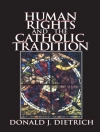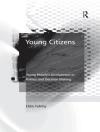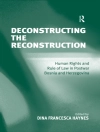A concise yet comprehensive account of the roles and influences of gender over the millennia, featuring new and updated content throughout
Gender in History: Global Perspectives, Third Edition, explores the construction and evolution of gender in many of the world’s cultures from the Paleolithic era to the COVID pandemic of the twenty-first century. Broad in geographic and topical scope, this comprehensive volume discusses the ways families, religions, social hierarchies, politics, work, education, art, sexuality, and other issues are linked to various conceptions of gender.
Now organized chronologically rather than topically, this extensively revised edition presents a wealth of up-to-date information based on the scholarship of the last decade. New and expanded chapters offer insights on the connections between gender and key events and trends in world history, including domestication and the development of agriculture, the growth of cities and larger-scale political structures, the spread of world religions, changing ideas of race, class, and sexuality, colonialism and imperialism, capitalism, wars, revolutions, and more. Written by a distinguished scholar in the field of women’s and gender history, this third edition of Gender in History:
* Examines how gender roles were shaped by family life, religious traditions, various other institutions, and how the institutions were influenced by gender
* Considers why gender variations developed in different cultures and in diverse social, ethnic, and racial groups within a single culture
* Addresses ideas in different cultures that shaped both informal societal norms and formalized laws
* Explores debates about the origins of patriarchy, the development of complex gender hierarchies, and contemporary movements for social change
* Discusses the gender implications of modern issues including the global pandemic and ongoing cultural and economic shifts
* Includes an accessible introduction to key theoretical and methodological issues and an instructor’s website site with visual and written original sources
Gender in History: Global Perspectives, Third Edition, is essential reading for undergraduate and graduate students in courses such as those on women’s history, women in world history, and gender in world history, and a valuable supplement for general survey courses within History and Women’s and Gender Studies programs.
Tabella dei contenuti
List of Figures viii
Acknowledgments ix
About the Companion Website x
1 Introduction 1
Women’s and Gender History 1
World and Global History 4
Gender, Sex, and Sexuality 6
Difference and Intersectionality 9
Theory in History 11
Gender History as a Field 15
Structure of the Book 17
2 Ideas, Ideals, Norms, and Laws 23
The Nature and Roles of Men and Women 26
Binaries 32
Motherhood and Fatherhood 36
Ideologies, Norms, and Laws Prescribing Gender Inequity 39
Ideologies of Egalitarianism 42
3 Early Human History (to 3000 bce) 53
Early Hominids 54
Homo Sapiens 58
Paleolithic Society and Spirituality 61
Domestication 66
Agricultural Societies 68
The Origins of Patriarchy 72
4 Ancient Cities and States (3000 bce-600 bce) 85
Cities and Social Hierarchies 86
Writing 91
Families and Households 96
Work 103
Religions in the Ancient Near East 106
Hereditary Dynasties and Female Rulers 111
5 Classical Cultures (500 bce-500 ce) 120
Family Life in the Classical Cultures of Eurasia 121
Sexuality in Classical Eurasia 127
Philosophy and Religion in East Asia: Confucianism and Daoism 130
Religious Traditions of South Asia: Hinduism and Buddhism 132
Religious Traditions in the Mediterranean: Christianity 139
Education and Culture 143
6 The Middle Millennium (500 ce-1500 ce) 153
Families, Households, and Kin in Africa, the Americas, and the Pacific 154
Religious Traditions Transmitted Orally 158
State Based Societies in the Americas 162
Courts and Courtly Culture 164
The Rise and Spread of Islam 168
Europe and the Mediterranean 174
Cities and the Gendering of Work 177
7 The Early Modern World (1500 ce-1800 ce) 184
Economic Developments 185
The Renaissance 191
Religious Transformations 197
Families and Race 200
Representations of Conquest and Colonialization 206
Women and Politics 208
8 The Modern World (1800 ce-2021 ce) 220
Industrialization 221
Imperialism 227
Nineteenth-century Movements for Social Change 229
Modern Sexuality 236
Wars, Revolutions, and Political Change 243
The Industrial and Postindustrial Economy 251
Families in the Twentieth and Twenty-first Centuries 258
Cultural Changes in the Twentieth and Twenty-first Centuries 264
Afterword 277
Index 282
Circa l’autore
MERRY E. WIESNER-HANKS is Distinguished Professor of History and Women’s and Gender Studies Emerita, University of Wisconsin-Milwaukee, USA. She is an esteemed historian whose work has been central to the integration of women, gender, and sexuality into the study of early modern Europe and World/Global History. She is the long-time Senior Editor of the Sixteenth Century Journal and author or editor of thirty books and many articles that have been published in numerous languages.












